The Great Sugar Debate

It seems no matter where you look someone or something is talking about sugar. Defending it, promoting it, discussing its evils, all of the above!
One particular point of interest in this sugar debate is the IQS (I Quit Sugar) book and program, published a few years ago by Sarah Wilson. A few followers of this blog had brought up the topic of IQS to me in the past and wondered what my position was on it….
The topic of the IQS program, and sugar in general, is one which I have studied extensively and for one simple reason.
My own health and wellbeing.
It should be said that although I am not a professional in this field, I have covered vast amounts of material striving for my own optimal health + I have no book out about sugar to sell you. For me this debate is fascinating and I am more than happy to share with you my thoughts on it.
With this being such a hotly-discussed debate where to start….
How about with what is defined as sugar in this post?
Refined sugar, non-refined sugar, naturally occurring, glucose, fructose, sucrose, all of it. This post is not about boring you with the science of the subject and besides the internet is already flooded with pieces written on the topic, so let’s stick with the “great sugar debate.” However I highly recommend learning more about the subject, so spend the time when you want to know for yourself!
What I can tell you straight away in this post is that the decision to remove processed foods and their hidden sugars from my diet; almost entirely; a few years ago was the best that I have ever made… (except for quitting the corporate world!)
It came to me as a completely natural instinct as well. Years and years of visiting specialists in their various fields combined with my own research and experience, had shown me that when I consumed foods as close to their natural state as possible, I felt phenomenal.
Of course I did.
Gone were the packets, cans and jars of anything. The thing is, I didn’t crave their return either. There was now no other option, no turning back for me. Almost immediately I felt better and of course this is a no-brainer. Making the food that I consumed from scratch meant that I was eating incredibly well. Luscious and nourishing whole foods made with love and consumed in the same vein. Like most of our actions, this rewarding process gained momentum and became more and more engrained in my daily lifestyle.
In that first period of removing processed foods and moving towards a cleaner lifestyle, an average day for me looked like this in sugar world:
- 2 pieces fresh fruit
- handful dried fruit
- the odd drizzle of honey on porridge
- the odd treat/dessert (not too much of a sweet tooth – more on this later!)
On a consumption scale of 1-10, I would have been on the leaner end however there was room for further improvement in my eyes.
Fast forward and my average day now looks more like this:
- 1-2 pieces fresh fruit
- the odd handful dried fruit
- the odd drizzle treat/dessert (honey!)
Years later, I am still yet to look back. The immense change in my eating habits, health & vitality is obvious for all to see, and me to feel.
Why did I decide to alter my eating habits in this way and why does it feel better subsequently? And why is it that sugar gets SUCH a bad name??
Let’s get back to Sarah Wilson and IQS for this point.
In her book, I Quit Sugar: 8-Week Program this is how Sarah introduces her sugar consumption… “Three pieces of fruit a day. A handful of dried fruit on my muesli or in my porridge. A teaspoon or two of honey in my tea. A small (35g) bar of dark chocolate after lunch. And, after dinner, honey drizzled on yoghurt or dessert (if I was out with friends). A conservative day would see me consume about 30 teaspoons of sugar.”
As a firm believer in respecting people’s hard work, I have no intention on sharing all of Sarah’s book with you in this post though I do want to clarify Sarah (and science’s) concern when it comes to sugar.
Problem #1: fructose makes us eat more
Problem #2: fructose converts directly to fat.
Fructose is a natural source of sugar and can be found in fruits, vegetables (including sugar cane), and honey.
What is the issue? Every molecule that we consume has corresponding appetite hormones. When we have eaten enough of said molecule, these hormones tell our brains, “You are done, we’re full now. Stop eating.” Our bodies are pretty clever that way; we’re designed to eat only as much as we need.
To directly quote Sarah, “this is relevant to every molecule, that is, except fructose.
….when we were cave people, sugar was both highly valuable (as insta-energy for chasing wildebeest) and extremely rare (a berry here and there). Thus we evolved with no fructose “full switch”. This was so that when we did stumble on a berry bush we could gorge ourselves stupid (and store it as insta-fat).
All very well back when sugar was rare and we had to work hard to get it. But now it’s ludicrously abundant and we barely have to extend an arm to get at it. Having no “off switch” is a massive liability!”
The above are not disputed facts. They are very real and for our world as a whole look less than ideal…
There are figures out there that tell us we consume one kilo of sugar per week and yet 150+ years ago, we consumed none.
Additionally, the low-fat industry is big business and it seems many people are unaware that low-fat food often contains more sugar than the whole-food version. This is due to sugar being added to make a food taste more like the original.
People all too often describe to me their intense sugar cravings as a force so powerful that an entire packet of lollies or chocolate biscuits can be demolished within minutes.
This is why when I mentioned earlier that I don’t have a huge sweet tooth, it all makes sense in the big picture. Having not grown up with a large sugar consumption, I never acquired a sweet tooth and that is precisely the verb which is relevant here.
The confronting truth is that…
You eat it. You want more. We all know how this feels.
My prognosis: it sucks. Sometimes I wish it wasn’t so and that red snakes & freckles were not full of crap that does little for my body, or yours. However the sugar-crash and other subsequent effects are even more crap AND for people with insulin concerns like myself, of further issue!
If you do have a sweet tooth, perhaps you find yourself consuming far more than I have stated above, or perhaps you exhibit the classic mid-afternoon slump, then I dare say a little less sugar in your world would not be ill-advised. The reality is; and where the IQS program comes in; it is sometimes not simply about lessening your intake. Should you identify with any of what I have just described you really need to break it down and re-build; within yourself.
Sarah Wilson and her IQS program, have been accused of a million things though really this human being is wanting to help, she is bringing health front and centre in many of our minds. She is provoking conversation and debate. She also firmly believes in her words, praising her sugar-less life as the reason that her own auto-immune disease; and its symptoms; have diminished. Can you blame her passion? Those that do, often it seems simply to object, are perhaps the ones to be questioning in my opinion…
In short, the IQS program is about gradually cutting back and then removing all sugar from your diet for 8 weeks. It is then that you can slowly re-introduce the sugars that are better metabolised, and of more benefit for most people, i.e. fresh fruit. It is about re-training the body and mind to eliminate the addictive-cycle of sugar.
I am fully on board with this idea for anyone struggling with the above. Addiction, to anything, is never a good thing.
Sarah Wilson, as an educated and well-informed health advocate, has this conclusive word on the debate….
“Sugar is certainly not the best thing we could consume however do I still enjoy it from time to time? I say this often – quitting sugar is an experiment. You see what it does, what it brings up, where it takes you. And I say this just as often – life is practice. It’s the practice, not some rigid finality, that is what it’s all about.”
Hear. Hear. Other than concurring with this sentiment, what is my word on it all?
Whilst I absolutely without a doubt advocate living a clean life focused on whole foods, I also am aware that we live on Planet Earth and any kind of complete restriction is tough. In fact deprivation can have huge negative impact as well, both physically and psychologically. So what do you do?
You get back to basics. Make your food and eat real food in line with your activity requirements.
Take joy and inspiration from the awesomeness that your body will be feeling from this approach.
Repeat.
Do you have a sugar comment or story to share with us? Comment below.
Nadia xxx
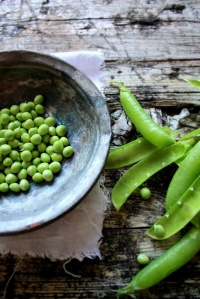
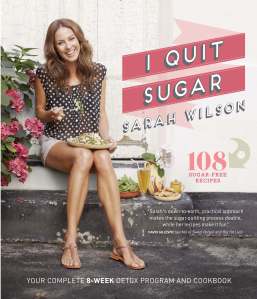
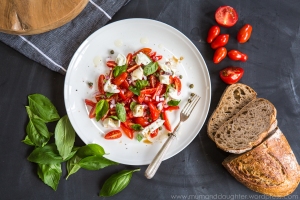


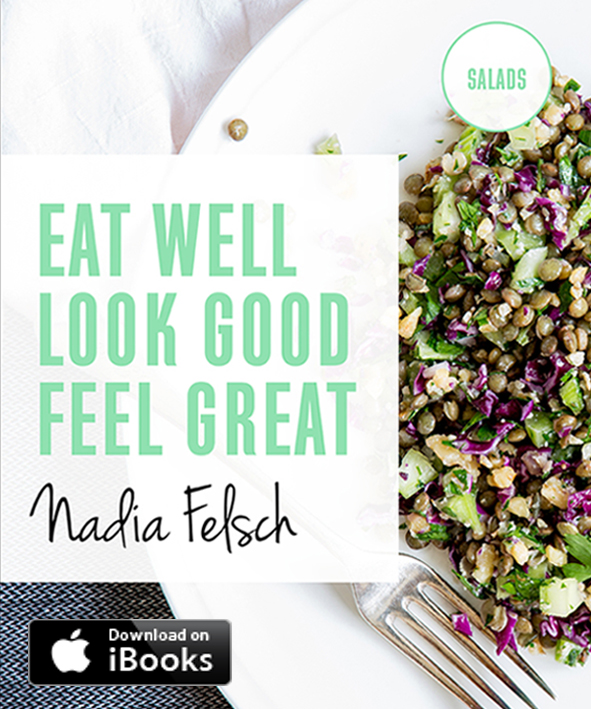
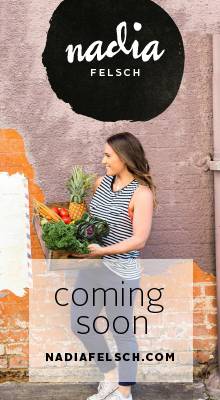
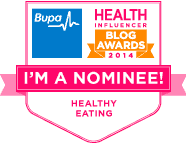


Excellent post. Reducin sugar has been very helpful for me. I completely agree.
Good work Kathleen and thank you for the kind words!
I totally agree with your whole food approach (and see similarities between paleo, low-carb, no sugar etc diets). 5 months into my whole food adventure and I’m 7kg lighter!! This has changed the way I look at food and I feel happier & fitter than ever!!
Thanks for the inspiration btw 🙂 xxx
Thank you thank you Chloe and you are absolutely welcome!!
Congratulations to you on such positive and rewarding changes xxx
Great article, I just set a challenge this morning to all of my clients and followers to cut out sugar completely from their nutrition for just one week and to report back on how much better they feel. I will be sharing this article with them as a back up to the challenge. thank you.
Love it!
Share away and keep us posted with their thoughts!
Reblogged this on plexuspinkdrinkhealth.